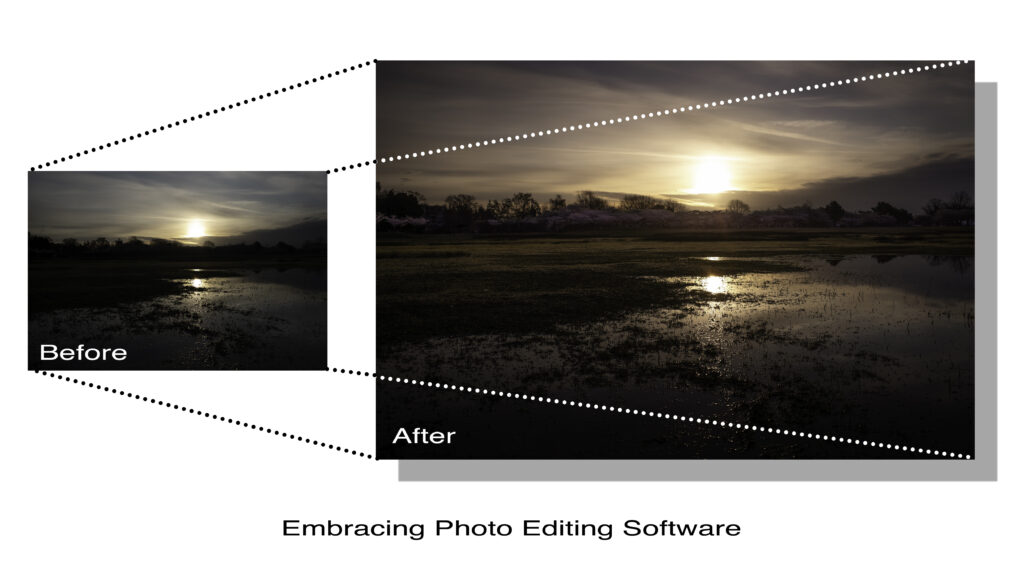Embracing Photo Editing Software: The Evolution of Photography and Artistry

In the realm of photography, a debate rages on: is the use of photo editing software like Photoshop, or any other editing software, a mark of inferiority?
Purists argue vehemently for the sanctity of capturing images solely through the lens, decrying any post-processing manipulation as an affront to the craft. But to dismiss the capabilities of editing software is to overlook the evolution of photography as both a technical and artistic medium. Gone are the days when photography was confined to the limitations of the camera alone. In today’s digital age, photographers have at their disposal a myriad of tools to enhance, manipulate, and refine their images. Photoshop, with its vast array of editing features, is just one such tool in the modern photographer’s arsenal. I derive immense pleasure from how this software enables me to manipulate RAW data to help craft my vision – making it possible for me to show an audience how what I see through my lens, makes me feel.
Critics of Photoshop often tout the mantra of “I did it all in camera” as a badge of honour, a testament to their supposed purity of vision. But this stance overlooks the fundamental purpose of photography: to capture and convey a moment or emotion. Whether achieved through the lens or in post-production, the end result is what truly matters. Consider, for instance, the work of renowned photographers who have embraced post-visualization as a means of artistic expression.
On the Fringes of Understanding
Jerry Uelsmann
https://www.bandwmag.com/articles/jerry-uelsmann-on-the-fringes-of-understanding
From the surreal composites of Jerry Uelsmann to the ethereal landscapes of Ansel Adams, these photographers embraced techniques beyond the camera – long before Photoshop. This evolution continues with the use of editing software, enabling artists to transcend the boundaries of traditional photography and create truly captivating imagery.
Amateurs and enthusiasts alike are discovering the creative possibilities that post-processing affords. Take, for example, the burgeoning genre of digital art photography, where photographers blend photography with graphic design to produce stunning, otherworldly compositions. Furthermore, the advent of AI technology has revolutionized the editing and creation process, offering photographers new tools and techniques to enhance their work. From automatic retouching to advanced image manipulation, AI-powered editing software has democratized the art of photography, making it more accessible to aspiring creatives.
So why, then, do some cling so fiercely to the notion that Photoshop is somehow a crutch for the untalented or lazy photographer? Perhaps it stems from a fear of change, a reluctance to embrace the inevitable evolution of their craft. But to dismiss Photoshop as mere cheating is to deny oneself the opportunity to explore new avenues of creativity and expression.The debate over the use of Photoshop in photography ultimately boils down to perspective. While some may view it as a betrayal of the purity of the art form, others see it as a tool for unlocking new levels of creativity and innovation. At its core, photography is about capturing moments and telling stories. Whether achieved through the lens or in the digital darkroom, the end result is what truly matters. There is no right or wrong when it comes to art. If using Photoshop or any other tools is your preference, then great. The important thing is that you’re creating art, and whether it’s crafted through traditional means or with the aid of AI, it’s still a valuable expression of creativity and vision.